![]() Add To Cart This Word Template
Add To Cart This Word Template
 Add To Cart Proposal Pack for Government Grants
Add To Cart Proposal Pack for Government Grants
 Add To Cart Proposal Kit Professional Bundle
Add To Cart Proposal Kit Professional Bundle


Key Takeaways
- One-time License, No Subscriptions: Pay once and use Proposal Kit forever with an up-front price lower than monthly services over time.
- Best Template Flexibility: Start with a proven DOE Federal Government Grant Proposal #2 and customize every section, logo, and color to fit your brand and project scope.
- Instant Access: Download immediately and open the sample proposal right away with no waiting, no onboarding delay.
- Ready-Made Structure: See a complete, real-world example (executive summary, scope, schedule, budget, and more) you can mirror for your project. Get a Proposal Pack or Professional package and use the AI Writer to create custom tailored samples or complete first drafts.
- Fully Editable Documents: Replace text, sections, and branding in minutes - no special software skills required.
- Step-by-Step Help: The Proposal Pack Wizard training mode, documentation, and videos guide you through customizing every section so you do not get stuck.
- Built-In Pricing and Quotes: Automate line-item quotes, totals, and taxes from a database, and insert tables/charts so your pricing is clear and consistent.
- Clear Pricing and Bundles: Choose a single industry pack or the Professional bundle for straightforward options that keep costs predictable as your needs grow.
How to write your DOE Federal Government Grant Proposal #2
You can create your customized editable variation of this document using Proposal Kit. Follow these steps to get started.
 DOWNLOADABLE, ONE-TIME COST, NO SUBSCRIPTION FEES
DOWNLOADABLE, ONE-TIME COST, NO SUBSCRIPTION FEES
Proposal Pack includes everything you need to get started now
- This sample proposal plus
- Library of all 200 samples
- Library of editable templates
- All templates in this design
- Basic contracts and invoices
- Financial calculators
- Wizard proposal software
- How to Write a Proposal e-books
- Customize with your logo
Screenshots of 4 of 19 pages of this sample
Click the PDF View link above to see more. The complete sample is included in every Proposal Pack and the included Wizard software can build you an editable version in Word that will be in the design theme you purchased. You can purchase a different design theme than the sample is illustrated with.
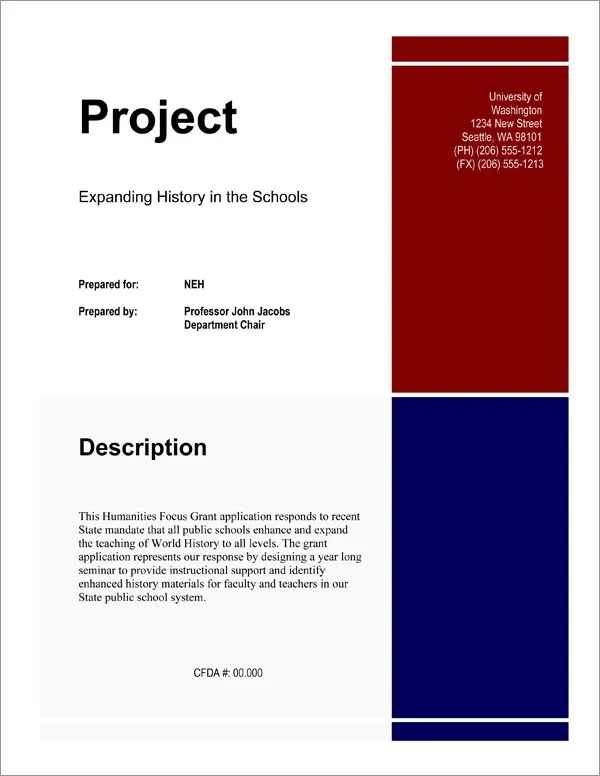
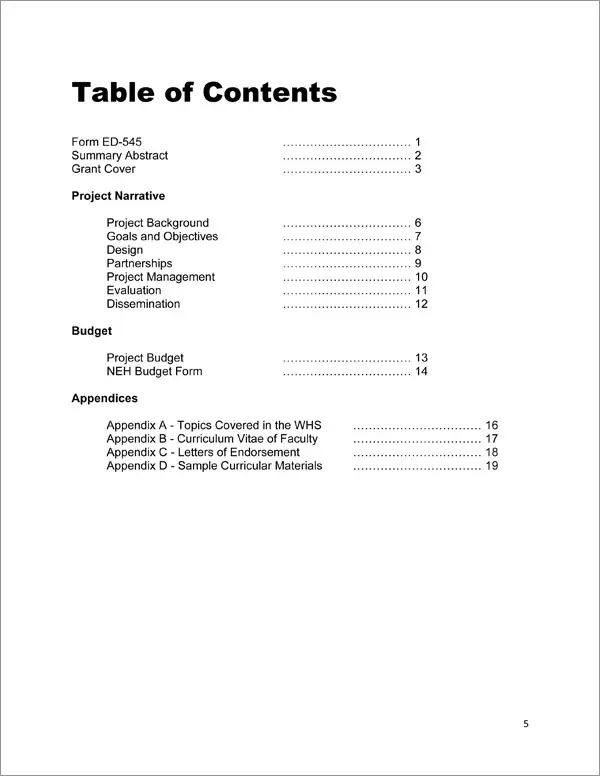
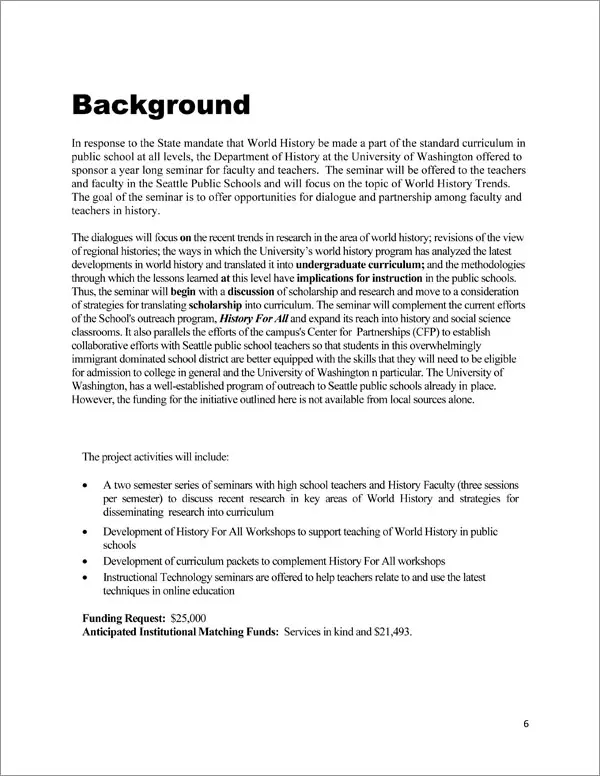
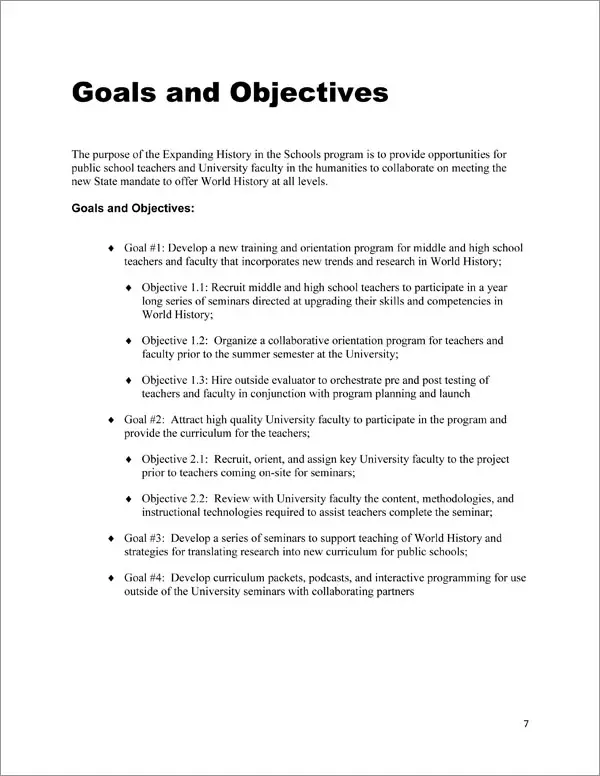
1. Get a Proposal Pack such as for Government Grants
This sample was created using the design theme Proposal Pack for Government Grants. You can recreate this same sample using any of our Proposal Pack design themes and have it customized for your business.
We include this sample in PDF and editable Word format chapters that can be customized using the included Wizard software when purchased with a Proposal Pack or the Professional Bundle.
To create your customized proposal using your logo and colors, get Proposal Pack for Any Business. We include this sample in every Proposal Pack.
2. Download and install after ordering
Once you have ordered and downloaded your Proposal Pack you will have all the content you need to get started. If you order the sample as a template you will download the Word document after ordering and edit it in your office software.
3. Set up the included Wizard software
While the Wizard software makes the process more efficient, you can manually assemble your version of this sample using the content provided and just a Word processor. We only include the Wizard software with a Proposal Pack or the Professional Bundle.
4. Import the Quick Start layout titled 'DOE Federal Government Grant Proposal #2'
The included Proposal Pack Wizard software makes creating a customized version of this document speedy and efficient. The sample content is in Word format documents, so you can also use the sample text without using our Wizard software. Using the Wizard software, you can create custom variations of this template and automate your quotes with the line item database.
This is a good example to follow for any business or individual applying for government grants.
Companies and individuals responding to government grant RFPs.
5. Customize the template with your information
You can customize the layout with different chapters, change the order of chapters, import your content and information, change the visual design, edit the text, and more. You have complete control over customizing this sample. Use the Wizard's AI Writer to create personalized content specific to your business and project that can be merged with the sample.
Once finished, the AI Writer's Word-to-PowerPoint converter can transform your proposal, business plan, or other business documents into a PowerPoint slideshow.
Abstract
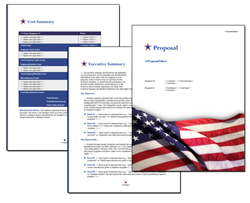
This proposed project supports local educational agencies and educators in meeting new state and federal regulations by developing a comprehensive program to improve the instruction of World History across public schools. Through a collaborative seminar model, the project team, composed of university faculty and public school teachers, will provide technical assistance, curriculum enhancements, and digital tools that address the challenges of implementing updated history standards. The initiative seeks to maximize the use of federal funds and formula grants while ensuring all costs are allowable and meet cost principles outlined in federal regulations and general administrative regulations. The application process requires required documents, supporting documents, and evidence of eligibility requirements, in addition to meeting submission deadlines and merit review criteria set by the federal agency.
A core focus of the project description is to build additional capacity and qualifications of educators, enabling them to implement energy-efficient and innovative teaching methods supported by software and data-driven approaches. The effort will contribute to improvements in both curriculum content and teaching strategies, with accountability ensured through a rigorous review process, reporting, and external evaluation. Cost share, program income, and prior approval of pre-award costs are addressed according to guidance and rules for federal grants, including doe grants. The allocation of financial assistance will cover real property needs, equipment, and compensation for project participants while access to resources and additional information is maintained throughout.
Eligible recipients are encouraged to demonstrate collaboration and exchange within the scope of the project while ownership of project outputs and interests remain in compliance with federal and institutional policies. The project aims to answer key questions in curriculum development, describe effective methods and outcomes, and ultimately address the mission of improving K-12 history education. This initiative also aligns with broader goals in energy, renewable energy, and energy efficiency by integrating sustainable practices into the educational environment. Applicants are advised to carefully prepare and submit all required materials to qualify for this funding opportunity and to seek clarification as needed to ensure compliance with all rules and regulations.
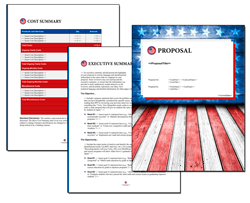
Additionally, the preparation and writing of a high-quality federal grant proposal demand careful attention to detail, especially to ensure all allowable costs and cost share requirements are met. The application process involves not only creating a project description but also thoroughly documenting payment structures, compensation plans for staff, and the allocation of resources within the office environment. By using Proposal Kit s automated tools and template libraries, applicants can streamline the development and organization of required documents, simplifying the complex process of grant proposal creation and minimizing the risk of failing to meet federal agency standards.
For local educational agencies, the successful implementation of such a project can lead to increased capacity, sustained funding, and the ability to compensate educators for their participation, even when project budgets are limited to a minimum. The benefits extend beyond compliance, as these grants empower recipients to innovate, collaborate, and deliver greater educational value without seeking profit. By following best practices in proposal writing and aligning with federal guidance, stakeholders not only maximize their funding opportunities but also demonstrate a commitment to continuous improvement in public education. Ultimately, the support provided through expert guidance and an efficient Proposal Kit helps ensure all topics of the proposal are addressed in detail, promoting accountability and increasing the likelihood of a successful outcome.
Careful management of payments is important throughout the life cycle of the proposed project, as timely payments ensure that all topics of implementation stay on track and participants are properly compensated. This financial diligence reduces the risk of disruption and builds trust among stakeholders. Furthermore, the grant proposal process encourages applicants to consider sustainability and long-term impact, prompting local educational agencies and project teams to plan for ongoing support and future improvements beyond the initial funding period.
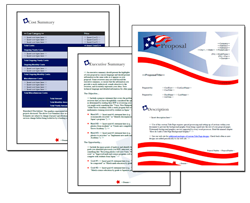
The project fosters professional development by encouraging educators to adopt new teaching methods and technologies, which can raise educational standards and student outcomes across the district. The collaborative framework also creates opportunities for ongoing exchange of ideas, supporting a culture of innovation and responsiveness to current educational challenges. This approach ensures that the benefits of federal financial assistance extend beyond the immediate objectives, establishing a foundation for continuous growth and adaptation in line with educational needs and federal priorities.
DOE Federal Government Grant Proposal #2 - The Narrative
Response to State mandate for World History at all levels in public schools
We responded to recent State mandate that World History become standard part of the public school curriculum at all levels. The Department of History in the School of Liberal Arts at the University of Washington offers to sponsor year long seminar devoted to faculty high school and middle school teachers. The aim of this effort is to update the teachers on new trends in the field of history involve them in digital innovations providing virtual fields trips and identify new resources to help them expand on the teaching of history at all levels.
A second intent is to expand dialogues among professionals in history on the discussion of curriculum revisions teaching techniques and computer assisted instructional technologies used in the course of history. This effort is made to complement not replace existing programs and to offer expanded partnerships between the University and the public schools.
Expanding History in the Schools
Reason for Grant. The State required that all public schools include World History at all levels. The Department of History at the local university created enrichment seminars for faculty and teachers to meet this mandate. This Humanities Focus Grant application responds to recent State mandate that all public schools enhance and expand the teaching of World History to all levels.
The grant application represents our response by designing year long seminar to provide instructional support and identify enhanced history materials for faculty and teachers in our State public school system. In response to the State mandate that World History be made part of the standard curriculum in public school at all levels the Department of History at the University of Washington offered to sponsor year long seminar for faculty and teachers. The seminar will be offered to the teachers and faculty in the Seattle Public Schools and will focus on the topic of World History Trends.
The goal of the seminar is to offer opportunities for dialogue and partnership among faculty and teachers in history. The dialogues will focus on the recent trends in research in the area of world history; revisions of the view of regional histories; the ways in which the University’s world history program has analyzed the latest developments in world history and translated it into undergraduate curriculum; and the methodologies through which the lessons learned at this level have implications for instruction in the public schools. Thus the seminar will begin with discussion of scholarship and research and move to consideration of strategies for translating scholarship into curriculum.
The seminar will complement the current efforts of the School's outreach program History For All and expand its reach into history and social science classrooms. It also parallels the efforts of the campus's Center for Partnerships CFP to establish collaborative efforts with Seattle public school teachers so that students in this overwhelmingly immigrant dominated school district are better equipped with the skills that they will need to be eligible for admission to college in general and the University of Washington particular. The University of Washington has well established program of outreach to Seattle public schools already in place.
However the funding for the initiative outlined here is not available from local sources alone. The project activities will include. A two semester series of seminars with high school teachers and History Faculty three sessions per semester to discuss recent research in key areas of World History and strategies for disseminating research into curriculum. Development of History For All Workshops to support teaching of World History in public schools.
Development of curriculum packets to complement History For All workshops. Instructional Technology seminars are offered to help teachers relate to and use the latest techniques in online education.
Funding Request
Anticipated Institutional Matching Funds. Services in kind and $21,493.
Goals and Objectives
The purpose of the Expanding History in the Schools program is to provide opportunities for public school teachers and University faculty in the humanities to collaborate on meeting the new State mandate to offer World History at all levels. Develop new training and orientation program for middle and high school teachers and faculty that incorporates new trends and research in World History. Recruit middle and high school teachers to participate in year long series of seminars directed at upgrading their skills and competencies in World History. Organize collaborative orientation program for teachers and faculty prior to the summer semester at the University.
Hire outside evaluator to orchestrate pre and post testing of teachers and faculty in conjunction with program planning and launch. Attract high quality University faculty to participate in the program and provide the curriculum for the teachers. Recruit orient and assign key University faculty to the project prior to teachers coming on site for seminars. Review with University faculty the content methodologies and instructional technologies required to assist teachers complete the seminar.
Develop series of seminars to support teaching of World History and strategies for translating research into new curriculum for public schools. Develop curriculum packets podcasts and interactive programming for use outside of the University seminars with collaborating partners.
The Project Design
Our year long seminar programs will follow the academic calendar of the University of Washington. Full description of workshop topics are offered in Appendix A. Curriculum vitae for the seminar leaders are attached in Appendix B.
We project three meetings quarter focusing respectively on Fall Quarter. The first session will focus on the question "What is World History. And will be followed by two sessions on "South America in the World.
Partnerships
The Center for Partnerships CFP at the University of Washington operates broad based outreach program to 12 classrooms in Seattle area. The program includes language arts mathematics biological sciences; the arts; computer science and advanced placement courses that help students perform and meet State standards especially in the humanities. The History For All program that receives major funding and in kind services from the University’s CFP.
CFP fully supports the World History seminar and has agreed to provide financial support use of facilities and transportation fees that are linked to waivers for graduate students assigned to the project and teachers in the program. NEH Focus Grant Proposal funds to will be used to support editorial work and web site development used to produce the curricular modules that are produced during the workshops. CFP will also work closely with the Department of History and History For All to recruit teacher participants in the project from the Seattle Public Schools and Redmond Schools. We will also work with Faith Based Schools in the areas.
Representatives of several schools and the public schools administrators will meet as Task Force governing all work. Through this network CFP will provide institutional support to ensure that we recruit representative group of high school and middle school teachers. Seminar leaders will be responsible for developing course content testing students and providing feedback from dialogues for the overall program evaluation.
The contact person will be your main contact point to the project development team. All decisions must be cleared through the team contact person and project manager. Subordinate team members should not be contacted directly unless cleared by the team leader.
Evaluation
We plan to contract an outside consultant to evaluate and provide objective input for the final reports to school executives. It will be the responsibility of the evaluator to prepare pre seminar questionnaires; seminar evaluation forms and help set measures for performance with Department of History personnel involved in the project. Because there is partnership arrangement between the University and the schools we envision collaborative effort at defining measures of performance for teachers and feedback tools. Second intent is to reach students at the middle school high school and undergraduate levels for feedback on the performance of our teachers.
We will seek to measure the following.
- Determine the pre training knowledge of all teachers participating in the seminar;
- Determine the effectiveness of all seminars;
- Determine the understanding of new subject matter content for participants and students;
- Determine the mastery of specific seminar modules;
- Determine the effectiveness of the program in terms of the understanding by school personnel of the new State mandate in their classrooms and;
- Determine the effectiveness of the process and management of the program for the Department of History.
We also anticipate using measures for assessment that emerge from the dialogues with teachers that take place in our seminars. Because the History Department has only limited experience with this type of outreach initiative we will use the expertise of the consultant and the State Department of Education officials who are partnering with us in this program.
Dissemination
In order to ensure the diffusion of the innovations developed during our seminars with teachers and faculty we plan to develop curricular packets podcasts and online multimedia presentations of the archived work accomplished at the seminars. The curricular packets will provide models of the ideas and results that come from the completed seminars. We also plan to make available the documentation on the World History seminars.
Our newly created website will serve as an update source and resource moving forward for all teachers in the area involved with the World History. We have added graduate intern during the summer to provide editorial assistance during the project to ensure that curricular packets and presentations are prepared and ready for dissemination at the close of the phase program. The future objectives tied to dissemination include.
Ensuring teacher and faculty dialogues continue after the seminars through online contacts and website resources as well as joint planning for updates;
Expansion of the programming beyond the initial grades of the grant and moving forward to affect changes in other curriculum modules related to History by collaborating with teachers in the arts music science and;
We plan to use our seminar experience to advance to larger regional and national program. This will be accomplished by attracting other partners and funding sources for the continuing upgrade of teacher and faculty skills and competencies in this area. Collaborating with the instructional technology program at the University to continue the exploration of new teaching methodologies use of advanced communications and information technology and adaptation of current innovations already in use by students e.g. instant messaging podcasts etc.
NEH Collaborative Research Fellowship Proposed Budget
NEH has numerous budget forms see www.neh.gov. Fellowship awards will be based in part on applicant budget requests. Please provide the best available estimates for specific costs below.
In the first line list yourself and salary stipend costs for time devoted to research. In additional space please list any other support staff you require. List all travel including international flights and research related trips in the NIS.
Topics Covered in the Expanding History in the Schools
The year long seminar program will use the academic calendar of the University of Washington. The seminar topics are listed below. Fall Quarter.
Exploring World History. This includes sessions defining world history exploration of the various schools of thought regarding its composition appropriate periods trends controversies changes in the sequencing of history. Topics include. What is World History The Components of World History by Region Continents and the Approaches to Understanding their Development.
Winter Quarter. Latin America and Its Interaction with the World. Topics include. What is Latin America.
What are the different approaches to teaching its history. What are the schools of thought on the sequence controversies traditional and emerging approaches to teaching the history of Latin America in the global context. Spring Quarter. What is Europe’s Role in World History.
Topics include the rise of the "Isms" nationalism imperialism capitalism communism. What is the Multi Racial Context of Europe. pre 1945; post 1945. What was the Cold War and how did it change global politics. What is the current state of global history.
Appendix – Curriculum Vitae
Curriculum Vitae of the Faculty of the Program. Sample Instructions. The principal investigator on the project is Professor complete description of the professor’s background e.g. degree schools areas of specialization.
Publications conferences articles and statements regarding their relevance to the project should also be listed. The project manager trainers evaluator and task force members involved in this project should be listed appropriately following the above guidelines or those guidelines provided by the school or organization to which you belong.
Appendix – Letters of Endorsement
This is generic appendix page. Use the generic appendix templates when you have additional appendix material to attach to your proposal and there is not an existing Proposal Pack template to match your content. In reference to NEH proposals this space would usually apply to Letters of Endorsement and listing of those individuals and organization in support of the proposal.
This template was not required for the final proposal submitted to the government agency so it was not filled in. It is included in the sample as an optional template the proposal writer could have added. The final proposal submitted to the agency deleted this page from the framework.
Appendix – Sample Curricular Materials
This is generic appendix page. Use the generic appendix templates when you have additional appendix material to attach to your proposal and there is not an existing Proposal Pack template to match your content. In reference to this NEH sample it is suggested that this space be allotted to information about the program materials or outputs expected as result of the activities of the program samples that may be included are.
Descriptions of curricular materials prepared or resulting from the research;
Actual examples of projected types of work that participants will be involved with e.g. questionnaires tests administrative tools;
Examples of instructional material planned for use in the project. This template was not required for the final proposal submitted to the government agency so it was not filled in. It is included in the sample as an optional template the proposal writer could have added.
The final proposal submitted to the agency deleted this page from the framework.
 What Our Clients Say
What Our Clients SayIt has been utter bliss saving tons of hours of trying to create proposals from scratch. The quality of proposals and other documents is absolutely top-notch, and I will genuinely recommend it to any serious business, looking for great quality and efficiency."
MSc., CISA, CISSP, CISM, CRISC, CDPO, ISO27k1LI, ISO27005 Risk Manager
There are 200 complete sample proposals including this one in each Proposal Pack
The following related samples are also included in Proposal Pack:
- DOE Federal Government Grant Proposal
- DOH Federal Government Grant Proposal
- DOJ Federal Government Grant Proposal
- DOJ Federal Government Grant Proposal #2
- EPA Federal Government Grant Proposal
- EPA Federal Government Grant Proposal #2
- HHS Federal Government Grant Proposal
- HHS Federal Government Grant Proposal #2
- USDA Federal Government Grant Proposal
These template layouts are related to this sample
The following related templates are also included in Proposal Pack with this sample:
- Educational Grant Proposal #2
- Grant Proposal for Special Needs Support
- Daycare Preschool Grant Funding Proposal
- STEM Educational Program Proposal
- Orphanage Non-Profit Funding Support Proposal
- Educational Grant Proposal
- Non-Profit Parenting Distance Learning and Workshop Proposal
- Computer Lab for Students Educational Proposal
- Distance Learning Education Proposal
- Science Lab for Students Educational Proposal
Length of Sample
19 PagesThere are thousands of chapters to choose from in Proposal Pack. This sample uses the following set of Proposal Pack chapter templates: Cover Sheet, Title Page, Table of Contents, Abstract, Goals and Objectives, Design, Project Background, Project Management, Evaluation, Dissemination, Project Budget, Partnerships, Worksheet, Appendix A, Appendix B, Appendix C, Appendix D.
DOE Federal Government Grant Proposal #2 Calculator Spreadheets
These Excel calculator spreadsheets are included with this template. If you purchase a Proposal Pack or the Professional Bundle, these proposal pages are generated using an automated line-item database in the included Wizard software. The calculator spreadsheets are intended for use when purchasing only the sample as a static Word template.
This sample illustrates how to write the following types of proposals
- Non-technical proposal
- Service sales proposal
- Project pitch proposal
- RFP response
- Federal government grant proposal
- Many other types of proposals
Samples can be created in any Proposal Pack design theme
This sample was created with Proposal Pack for Government Grants. To change the visual look purchase any Proposal Pack and this sample will be created in that design theme.
Out of the over 501 Proposal Packs available these designs are also popular for this type of proposal and this sample proposal is also included in every Proposal Pack:
Photo Design Proposal Packs
 Proposal Pack Flag #6
Proposal Pack Flag #6 Proposal Pack Flag #7
Proposal Pack Flag #7Line Art Design Proposal Packs
 Proposal Pack Flag #1
Proposal Pack Flag #1 Proposal Pack Flag #2
Proposal Pack Flag #2 Proposal Pack Flag #3
Proposal Pack Flag #3 Proposal Pack Flag #4
Proposal Pack Flag #4 Proposal Pack Flag #5
Proposal Pack Flag #5 Proposal Pack for Any Business
Proposal Pack for Any Business20% Off Discount
![]() Add To Cart This Word Template
Add To Cart This Word Template
 Add To Cart Proposal Pack for Government Grants
Add To Cart Proposal Pack for Government Grants
 Add To Cart Proposal Kit Professional Bundle
Add To Cart Proposal Kit Professional Bundle
 4.7 stars, based on 849 reviews
4.7 stars, based on 849 reviewsHow to Respond to a Government RFP
This video illustrates how Proposal Kit is used to respond to government RFPs. This also works for any RFP response or complex document you need to assemble based on instructions you are given. This video shows how to analyze an RFP to pick out what major topics need to be talked about. That list of topics is then turned into a list of Proposal Kit chapters that are assembled into a custom Word document to match the RFP.
Frequently Asked Questions
How do I customize this sample to fit my specific project or business?
If you purchase this sample as a static template, it will be an editable Word format document; otherwise, if you buy a Proposal Pack or the Professional bundle, you can build a more customized editable Word document version of it using the included Wizard software. You can replace the sample information with your own, adjust the text to match your company's tone and style, and modify sections to include project-specific details. The included AI Writer will also customize the content for you.
Can I use multiple sample proposals for different types of projects?
You can purchase multiple samples as individual Word templates or all 200 samples are included in every Proposal Pack and Proposal Kit Professional, which is a much better deal. The Proposal Kit offers sample proposals for various industries and project types. You can select and customize different sample proposals to suit each unique project. This flexibility allows you to create tailored proposals for other clients or projects.
How can I integrate my branding into this sample?
While this sample is an editable Word document, depending on the level of custom branding needed, consider the Proposal Kit Professional, which includes the branding features in the Wizard software that let you create custom-branded design themes more effectively. Start by incorporating your company's logo on the cover page, as well as in the headers and footers of the document. Next, adjust the color scheme of the proposal to match your brand colors. Change the fonts in the proposal to align with your brand's standard fonts. Including branded graphics that reflect your brand's style will further enhance the proposal. Additionally, ensure that the text within the proposal maintains a tone and voice consistent with your brand's communication style. By integrating these elements, your proposal will reinforce your brand identity.
How do I ensure my proposal stands out and wins the client?
To ensure your proposal stands out:
- Personalize the content: Address the client's needs, challenges, and goals to make the proposal unique.
- Highlight your value proposition: Communicate what sets your business apart and how to deliver superior results.
- Use professional design elements: Incorporate visuals, charts, and graphs to enhance the presentation and make it more engaging.
- Proofread and edit: Ensure the proposal is error-free and well-organized. A polished, professional document reflects your attention to detail and professionalism.
What should I do if I need help understanding or modifying a section of this sample?
If you need help understanding or modifying a section of this sample, refer to the detailed instructions provided. Additionally, Proposal Kit includes customer support and resources such as tutorials and videos to assist you. Consulting with a colleague or a professional in your industry can also be beneficial if further clarification is needed. Asking an AI tool can also provide valuable insights for immediate needs. You can load this sample into the Wizard software and let its AI Writer customize the pages for you.
 Ian Lauder has been helping businesses write their proposals and contracts for two decades. Ian is the owner and founder of Proposal Kit, one of the original sources of business proposal and contract software products started in 1997.
Ian Lauder has been helping businesses write their proposals and contracts for two decades. Ian is the owner and founder of Proposal Kit, one of the original sources of business proposal and contract software products started in 1997.By Ian Lauder
 Published by Proposal Kit, Inc.
Published by Proposal Kit, Inc.


 Cart
Cart
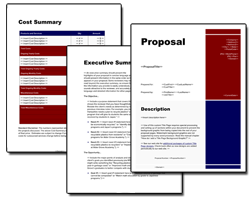

 Facebook
Facebook YouTube
YouTube Bluesky
Bluesky Search Site
Search Site